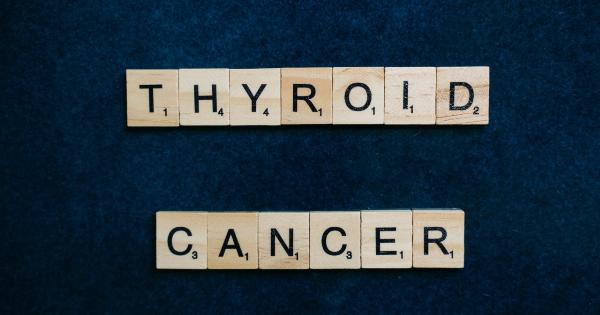Hyperthyroidism is a condition in which the thyroid gland produces too much thyroid hormone. This can cause various health problems and can be difficult to diagnose initially.
There are several causes of hyperthyroidism, and identifying the underlying cause can help in providing the appropriate treatment. In this article, we will discuss the causes and symptoms of hyperthyroidism.
What is the Thyroid Gland?
The thyroid gland is a small, butterfly-shaped gland located in the neck. It produces hormones that regulate metabolism and other bodily functions.
The thyroid gland produces two hormones, thyroxine (T4) and triiodothyronine (T3), which regulate the body’s energy usage, temperature, and weight.
Causes of Hyperthyroidism
There are several causes of hyperthyroidism, including the following:.
Graves’ Disease
Graves’ disease is an autoimmune disorder that causes the immune system to attack the thyroid gland, causing it to produce too much thyroid hormone. This is the most common cause of hyperthyroidism.
Excess Iodine
Consuming high doses of iodine can cause the thyroid gland to produce too much thyroid hormone. Iodine is commonly found in seafood, iodized salt, and some supplements.
Thyroiditis
Thyroiditis is inflammation of the thyroid gland, which can cause an excessive release of thyroid hormone. This inflammation can be caused by viral infections, autoimmune disorders, or radiation therapy.
Benign Thyroid Tumors
Benign thyroid tumors, such as toxic adenomas, can cause the thyroid gland to produce too much hormone.
Symptoms of Hyperthyroidism
The symptoms of hyperthyroidism can vary, and some people may not experience any symptoms at all. The most common symptoms of hyperthyroidism include the following:.
Weight Loss
Hyperthyroidism can cause a rapid or significant weight loss despite increased appetite.
Increased Heart Rate
Hyperthyroidism can cause a rapid heart rate, which can lead to palpitations and shortness of breath.
Muscle Weakness
Hyperthyroidism can cause muscle weakness and fatigue.
Nervousness and Anxiety
Hyperthyroidism can cause nervousness, anxiety, and irritability.
Tremors
Hyperthyroidism can cause trembling or shaking, particularly in the hands and fingers.
Heat Intolerance
Hyperthyroidism can cause an intolerance to heat and excessive sweating.
Frequent Bowel Movements
Hyperthyroidism can cause an increase in bowel movements and diarrhea.
Diagnosis and Treatment of Hyperthyroidism
If hyperthyroidism is suspected, the following tests may be conducted:.
Blood Tests
Blood tests can measure the levels of thyroid hormone, thyroid-stimulating hormone (TSH), and other thyroid-related hormones.
Radioactive Iodine Uptake (RAIU) Test
The RAIU test measures the amount of radioactive iodine that is taken up by the thyroid gland. This test can help determine the cause of hyperthyroidism.
Thyroid Scan
The thyroid scan uses a small amount of radioactive material to create an image of the thyroid gland to identify any abnormalities.
The treatment for hyperthyroidism depends on the underlying cause and severity of the condition. Treatment options include:.
Medications
Medications, such as beta-blockers and antithyroid drugs, can help regulate the production of thyroid hormone and reduce symptoms.
Radioactive Iodine Treatment
Radioactive iodine treatment involves taking radioactive iodine orally, which destroys the thyroid gland cells responsible for producing thyroid hormone. This treatment can result in hypothyroidism and may require lifelong hormone replacement therapy.
Surgery
Surgery to remove a portion of the thyroid gland (thyroidectomy) may be necessary in certain cases, such as when the thyroid gland is severely enlarged or contains nodules or tumors.
Conclusion
Hyperthyroidism is a condition in which the thyroid gland produces too much thyroid hormone. This can be caused by several factors, including Graves’ disease, excess iodine consumption, thyroiditis, and benign thyroid tumors.
Symptoms of hyperthyroidism can vary and can be difficult to diagnose initially. Treatment options depend on the underlying cause and severity of the condition and may include medications, radioactive iodine treatment, or surgery.






























